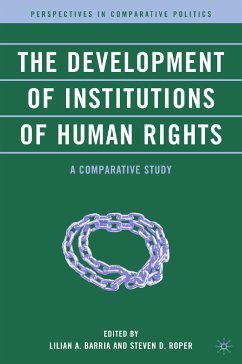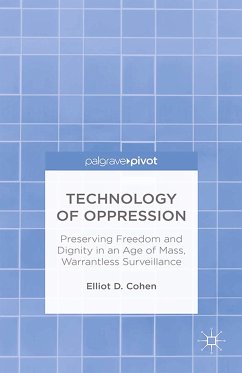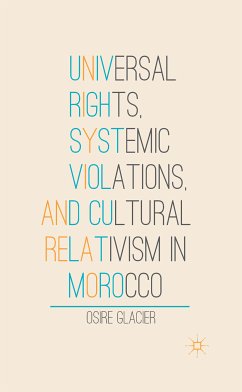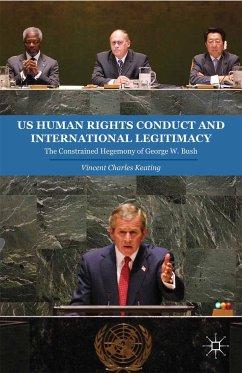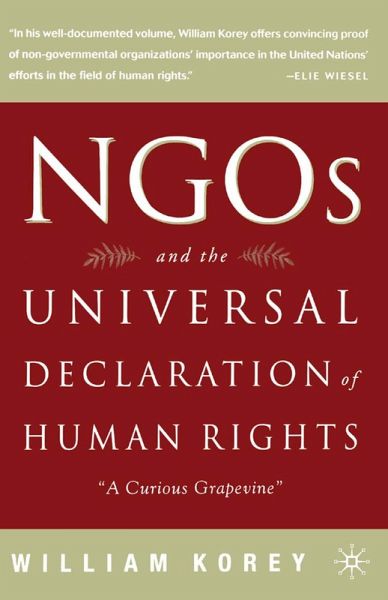
NGO's and the Universal Declaration of Human Rights (eBook, PDF)
A Curious Grapevine
Versandkostenfrei!
Sofort per Download lieferbar
68,95 €
inkl. MwSt.
Weitere Ausgaben:

PAYBACK Punkte
34 °P sammeln!
When the Universal Declaration of Human Rights was adopted 50 years ago, Eleanor Roosevelt, its principal architect, predicted that a 'curious grapevine' would carry its message behind barbed wire and stone walls. This book tells the extraordinary story of how NGOs became the 'grapevine' she anticipated - sharpening our awareness about the violations of human rights, 'shaming' its most notorious abusers and creating the international mechanisms to bring about implementation of the Declaration. Korey traces how NGO's laid the groundwork for the destruction of the Soviet empire, as well as of th...
When the Universal Declaration of Human Rights was adopted 50 years ago, Eleanor Roosevelt, its principal architect, predicted that a 'curious grapevine' would carry its message behind barbed wire and stone walls. This book tells the extraordinary story of how NGOs became the 'grapevine' she anticipated - sharpening our awareness about the violations of human rights, 'shaming' its most notorious abusers and creating the international mechanisms to bring about implementation of the Declaration. Korey traces how NGO's laid the groundwork for the destruction of the Soviet empire, as well as of the apartheid system in South Africa, and established the principle of accountability for crimes against humanity. The notion of human rights has progressed from being a marginal part of international relations a half century ago to stand today as a critical element in diplomatic discourse and this book shows that it is the NGOs that have placed human rights at the centre of humankind's present and future agenda.
Dieser Download kann aus rechtlichen Gründen nur mit Rechnungsadresse in A, B, BG, CY, CZ, D, DK, EW, E, FIN, F, GR, HR, H, IRL, I, LT, L, LR, M, NL, PL, P, R, S, SLO, SK ausgeliefert werden.



